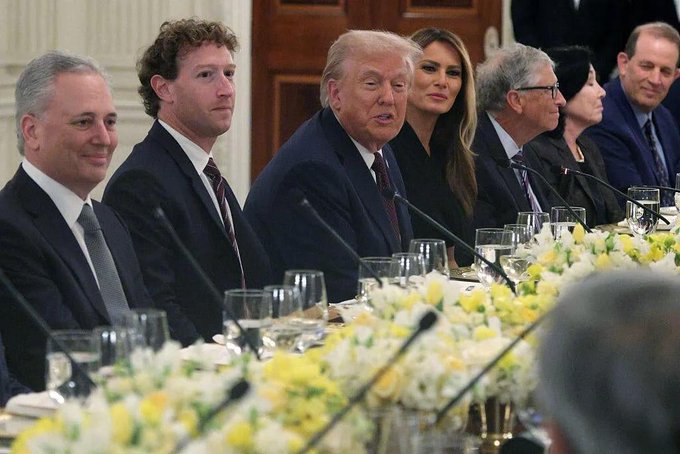Tale of 'Big Tech' and 'Body Shops': The Real Story Behind Trump's $100,000 H1B Fee
Trump has recently imposed $100,000 fee for each H1B applicant, this has created a lot of buzz and panic in both U.S. and India which happens to sponsor about 70% of overall H1B applicants to the states every year. Rather than look at this through the extreme panic lens that folks back home are using, or the extremely gleeful lens that Trump’s MAGA base is using, I’m going to do a clinical and realpolitik analysis of this whole situation.
Broadly speaking, there are two kinds of software companies in the American IT industry. Firstly, the product based companies like Microsoft, Google, Oracle, Adobe, etc. which are also called “big techs” or “Valley companies” as they’re based in the famous area of Silicon Valley in California. Secondly, there are the IT Services firms like Infosys, TCS, Wipro, Tech Mahindra, etc. which are based outside of Silicon Valley, make massive use of H1B visa applications and are mostly India based. These are ‘affectionately’ called “body shops” by some Americans, especially the folks in Trump’s MAGA base who often have a profound dislike towards those who “steal their jobs”.
In recent years, there has been a strong business rivalry between these two sets of firms. As every story has a David vs Goliath, or Peasants vs Lords, or a Model vs Rajput college in the popular 1990s movie ‘Jo Jeeta Wohi Sikandar’, in our story they happen to be the big techs and these services firms.

A still from Jo Jeeta Wohi Sikandar (1992)
It’s funny how it works really because back home, these same services firms are highly respected tax-paying companies, and most IT grads line up eagerly to get recruited through their interviews and walk-ins. Coming back to our story, the recent famous dinner at White House on 6th September attended by most of the big tech CEOs should leave little doubt about who is closer to the Trump establishment.

Now this is where the story takes an interesting turn. We don’t know if the H1B decision was made in that dinner meeting or sometime later but there is no doubt that it affects the profitability of services firms more disproportionately than ‘big techs’. While MAGA supporters have long pushed for restrictions, the business incentives for big techs may be equally significant.
Infosys stock, for example, declined rapidly after this announcement. That’s because they have a much bigger quota of H1B visas than the big techs. The big techs only choose to sponsor the most scholar IT Experts in research areas like AI, Blockchain, IT Security, Chip Design, etc, while the services firms mostly hire mainstream developers like PHP and python coders, database analysts, testing and QA staff, etc.
There is a lot for big techs to gain by this decision. The clients of Infosys and TCS, for example, will find it difficult to pay the additional overhead of $100,000 per H1B applicant. This will make them more inclined to switch to a big tech firm - this not only improves their bottom line but also aligns well with Trump’s U.S. First policy.
Not just that, if Infosys and TCS decide to shift outsourcing back home to India, the now jobless H1B holders in the states will be absorbed at a very cheap rate by the big techs! It’s possible that exemptions or reversals could emerge later, especially if big tech lobbies successfully.
Presently, the situation looks gloomy for India’s IT services champions. Yet, much like the underdog in Jo Jeeta Wohi Sikandar, they still have cards to play. The fact that the White House quickly rushed to issue clarifications shows that these so-called ‘body shops’ retain significant lobbying influence, even if it’s exercised more quietly than Silicon Valley’s.
Looking ahead, the most pragmatic course for firms like Infosys and TCS is to deepen their ties with policymakers who are more sympathetic to global talent flows—likely the Democrats—and ride out the current turbulence. In Washington, policy battles are rarely permanent victories or defeats. Just as the big techs have aligned their interests with the administration today, the services firms may yet find an opening to turn the tide tomorrow. The H1B tussle is ultimately less about ideology and more about which side can bend U.S. policy to its economic advantage.